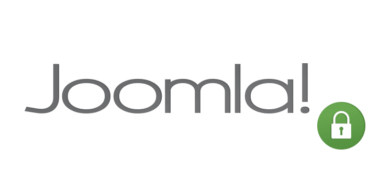Perhaps the best way to dive into the subject of finding and removing SEO spam on WordPress is with a quick experiment — probably one you’ll want to conduct at a private location. Run a Google search with the terms buy viagra cialis.
Without clicking anything (seriously, don’t), take a close look at the results. You’ll likely see one or more seemingly innocent, non-pharmaceutical websites advertising these medications.

What is SEO spam on WordPress?
So, if your search turned up anything resembling what is presented above, you’re likely looking at an example of a website (hopefully not yours) that’s infected with SEO spam. And because WordPress websites are so common — along with their vulnerabilities — they’re frequently a target for bad actors and their scams. When a WordPress site gets hacked, the hacker has free reign to use it to further any number of sinister goals.
In the example we just saw, an ordinary web address seems to be driving traffic somewhere where they expect to buy medication, but will probably get ripped off.
The unique spelling of the medications we searched make them prime keywords for hackers to inject into a website in order to attract their actual targets. SEO spam can use all kinds of keywords — such as those for athletic shoes or adult content — to attract unwitting traffic. In fact, SEO spam was responsible for 38.4% of infections identified in our 2024 malware trends report.
How to Find SEO Spam on WordPress
Imagine you were the website owner in the experiment we just conducted. If your site showed up like that, wouldn’t you want to remove the SEO spam from WordPress right away? Unfortunately, SEO spam on WordPress isn’t always that obvious, as it can live not only on public-facing pages, but also in your site’s core files. Here are a few tools that can help you find SEO spam on a WordPress website.
Google Search Console
If you haven’t set up your website on Google Search Console, do it as soon as you can. It’s an invaluable tool that not only helps you find SEO spam on WordPress, but also maintain the overall health of your site.
In the security issues report, you’ll see issue types along with samples of affected URLs. If you need to remove blackhat SEO spam from your WordPress site, Google Search Console will show you where in the directory to find it. Pair this with server-side checks to identify and remove the actual malicious files.

Also note: Some infections “cloak” content so spam only appears to search engines or specific referrers. Use Google Search Console’s URL Inspection → Test live URL to see what Googlebot sees.
Google Transparency Report
In a previous post, we talked about website malware scanners you should check out, and Google Transparency Report was one of them. Enter the web address of your site or the URL of a specific page, and you’ll see whether or not Google deems it safe to visit.
Keep in mind: Safe Browsing focuses on malware, unwanted software, and phishing. It may not flag pure SEO spam, so treat it as a safety signal rather than a definitive spam detector. Even if you don’t suspect your site is infected, it’s still a good idea to check you standing with Google.
Google Yourself
Open an incognito tab in Chrome, and then search the URL of your website so its pages appear in the results. Check to see if any appear spammy. This certainly isn’t the most comprehensive method, but if you’re a website owner who admittedly isn’t “techy,” it should help you get started looking. Check further by running targeted queries like site:yourdomain.com casino OR pills OR cialis OR viagra.
Website Scanners
While Google Transparency Report is intended for website visitors, there are many online scanners designed to help owners. For example, Sucuri SiteCheck and UnmaskParasites include functions such as scanning for malware like SEO spam on WordPress, checking your blacklist status, and finding vulnerabilities like out-of-date plugins and other security issues. Remember, remote scanners evaluate what’s publicly served; they can miss server-side backdoors or spam that’s shown only to specific user agents.
Security Plugins
If you want to be proactive about avoiding SEO spam on WordPress, a security plugin is the way to go. One of the best, the Sucuri WordPress Plugin, hardens your website security to reduce the likelihood of an SEO spam infection. It also runs automatic scans for malware and includes several other features to lock down your WordPress site.
Types of SEO Spam on WordPress
Our own experience has revealed that SEO spam on WordPress can get fairly tricky and difficult to remove. You might not even notice an SEO spam infection if you don’t know what to look for. To make sure you understand what the bad guys are doing, let’s take a look at some of the most common types of SEO spam on WordPress.
Spammy Links
Hackers love a healthy website that ranks in search results because they can use it to attract victims. They’ll add links to your ordinary page content that will take visitors to another online property where they’ll likely get scammed.
Spammy Keywords
Even if they aren’t visible on public pages, spammy keywords can help hackers get your site to rank for the search terms they’re using in a scam. You might find them in less-than-obvious places, such as a page’s meta data. Attackers may also inject hidden text via CSS or place keywords in template partials so they appear sitewide.
Spammy Ads
A bad infection of SEO spam on WordPress might include banner ads or popups directing visitors to another site where bad actors are running a scam. Obviously, this creates a poor user experience and will erode trust visitors have in you. Some payloads dynamically load ads only for search-referrer traffic to evade detection during routine spot checks.
Spammy Posts & Pages
Once hackers have access to your site, they can create entire blog posts or web pages optimized to rank for terms they’re using in a scam. These probably won’t appear in your navigation, but you can find them in your page list. Check for unfamiliar Authors, scheduled posts, and custom post types; attackers often set posts to “noindex” for regular users but expose them to crawlers via sitemaps or direct links.
How to Remove SEO Spam on WordPress
For most site owners, removing SEO spam on WordPress is a huge chore. As we’ve discussed, SEO spam can take on many forms and appear on your site where you’d least expect it. Remote scanners are helpful for a quick read, but server-side scanning and manual review are essential for cloaked or conditionally served spam.
Meanwhile, your brand is being devalued, visitors are losing trust, and eventually you might even face suspension by your host and blacklisting by search engines.
If you have SEO spam on your WordPress site, the safest and smartest move is getting professional SEO spam removal services — right away. Sucuri is a particularly wise choice is this regard because of fast turnaround times, unlimited cleanups in the event of reinfection, and 24/7/365 support from a team of website security experts.
Conclusion
You simply can’t say enough about the positive impact that WordPress has on the online community. However, with it’s great popularity comes a greater chance of being targeted by bad actors.
The best way to enjoy a WordPress website is making sure it’s protected by a robust security solution, so you don’t have to live in fear of SEO spam on WordPress. And if you’re in the business of building websites for clients, ensuring their security is arguably the most ethical way to handle web development.











